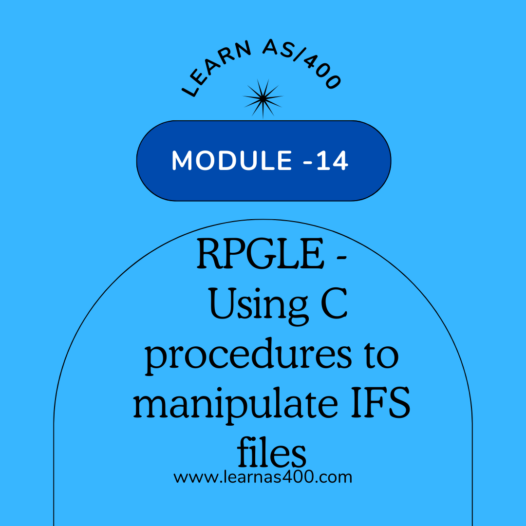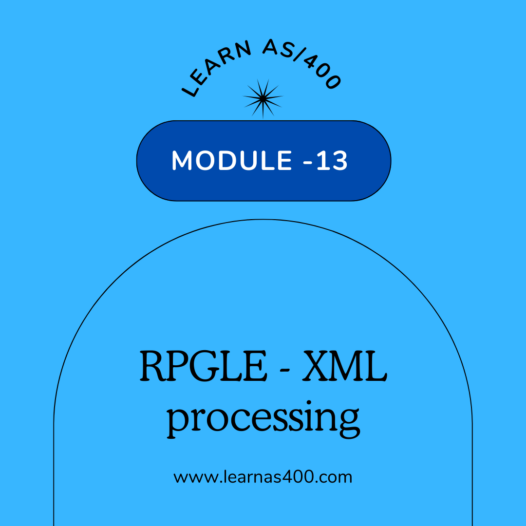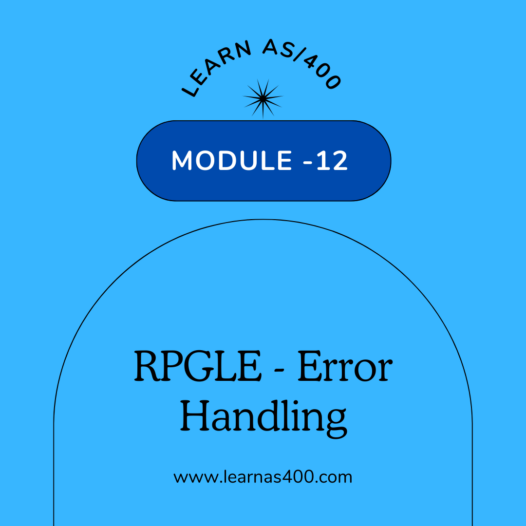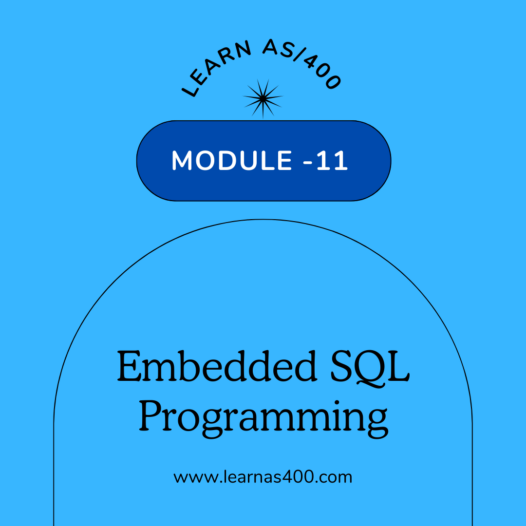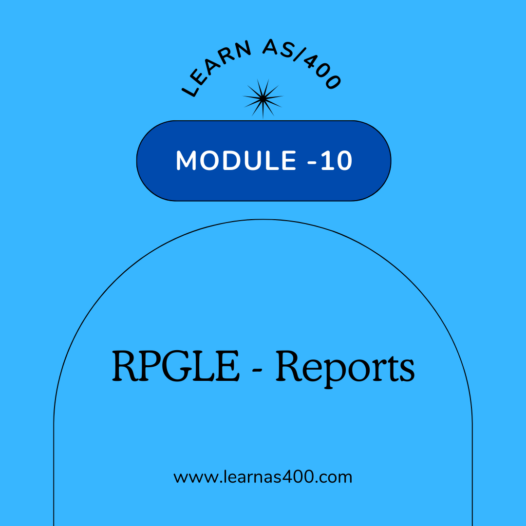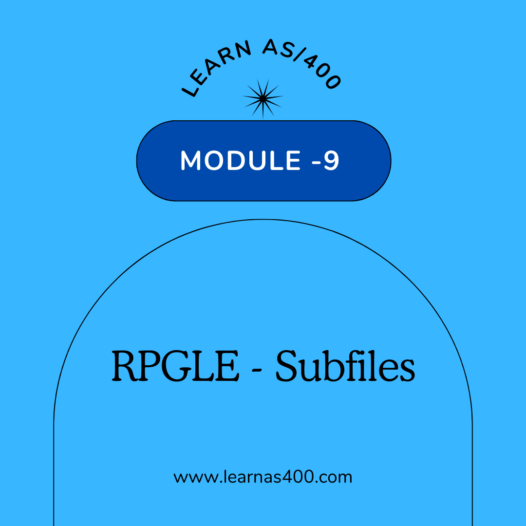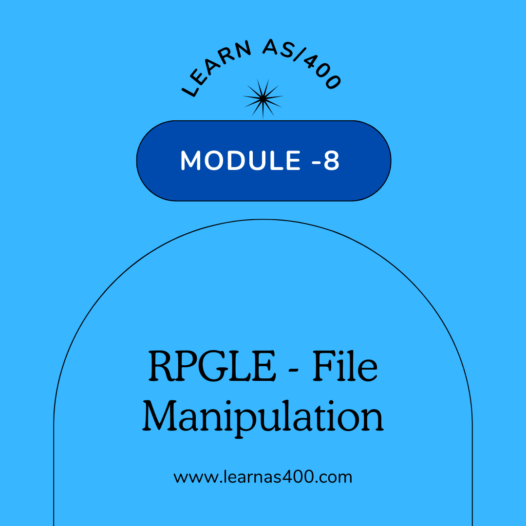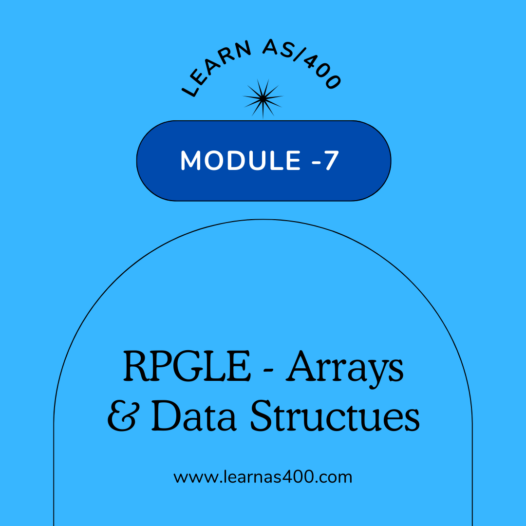14- RPGLE – Using C procedures to manipulate IFS files
To manipulate IFS files in RPGLE using C procedures, you can utilize C APIs like open(), read(), write(), and close(). These APIs allow you to perform operations such as creating, opening, reading, writing, and closing IFS stream files. Here’s a brief overview: Creating and Opening Files: Use the open() API to create or open an […]
13 – RPGLE – XML processing
Processing XML in RPGLE (RPG IV) involves parsing and generating XML documents. IBM iSeries provides tools and APIs to work with XML efficiently. Here are some common methods for XML processing in RPGLE: 1. Generating XML You can generate XML by building the XML document as a string or using SQL functions. Building XML as […]
12 – RPGLE – Error Handling
In RPGLE (RPG IV), effective error handling is crucial for creating robust and reliable programs. Here are some common strategies and techniques for handling errors in RPGLE: 1. Using the *PSSR Subroutine The *PSSR subroutine is a special error-handling routine that gets executed automatically when an error occurs in the program. rpg **FREE // Declare […]
11 – Embedded SQL Programming
Embedded SQL in RPGLE allows you to incorporate SQL statements directly within your RPG programs. This powerful feature combines the strengths of both SQL and RPGLE, making it easier to perform complex database operations. Here’s an overview of how to use embedded SQL in RPGLE: 1. Introduction to Embedded SQL Embedded SQL: SQL statements are […]
10 – RPGLE – Reports
This module covers detailed explanation of creating externally described printer files in RPGLE programs. Also Covers some examples program described printer files. Printer Files: Printer files describe how system formats the data as it is passed from the program to the printer. The data to be printed will be created as a spool file and […]
09- RPGLE – Subfiles
This module covers detailed explanation of using subfiles in RPGLE programs. Covers the different types and usage of those subfile types. Also covers different ways of loading the data to the subfile. Subfiles: Subfiles are used to display and/or manipulate multiple records of the same type at a time. A subfile is a group of […]
08- RPGLE – File Manipulation
This module covers detailed explanation of using files in RPGLE programs. Handles different ways of reading the data from the database files and also covers manipulating data through Record and Window type screens. File Handling: Whenever a file is used in a program, it needs to be declared in the File specification. The program can […]
07 – RPGLE – Arrays & Data Structures
This module covers detailed explanation and the usage of different types of arrays and data structures. Arrays: In RPGLE, an array is a collection of elements having the same data type and length. Array elements are stored in contiguous memory location. Each element can be accessed through a subscript, which starts from 1. The dimension […]
